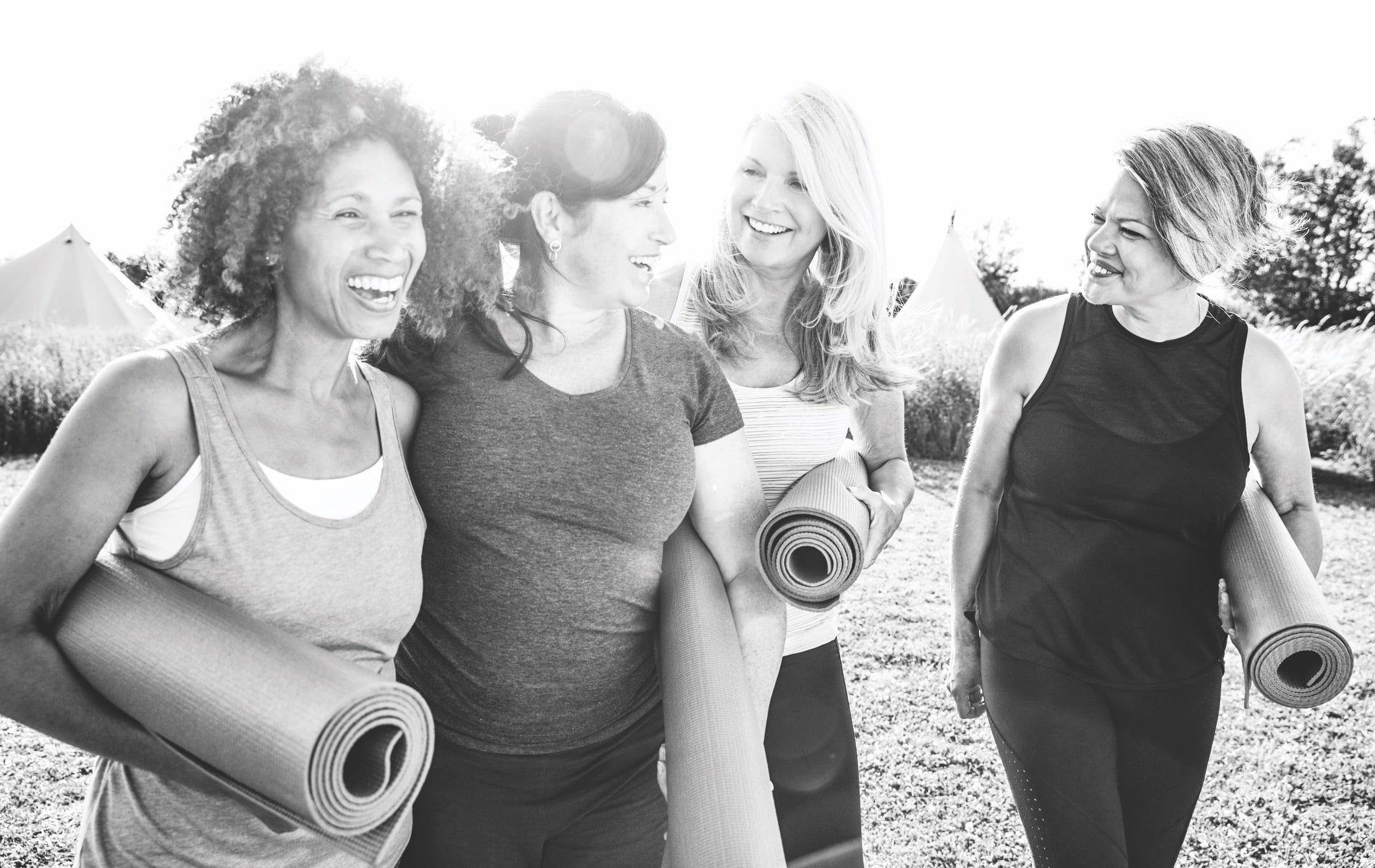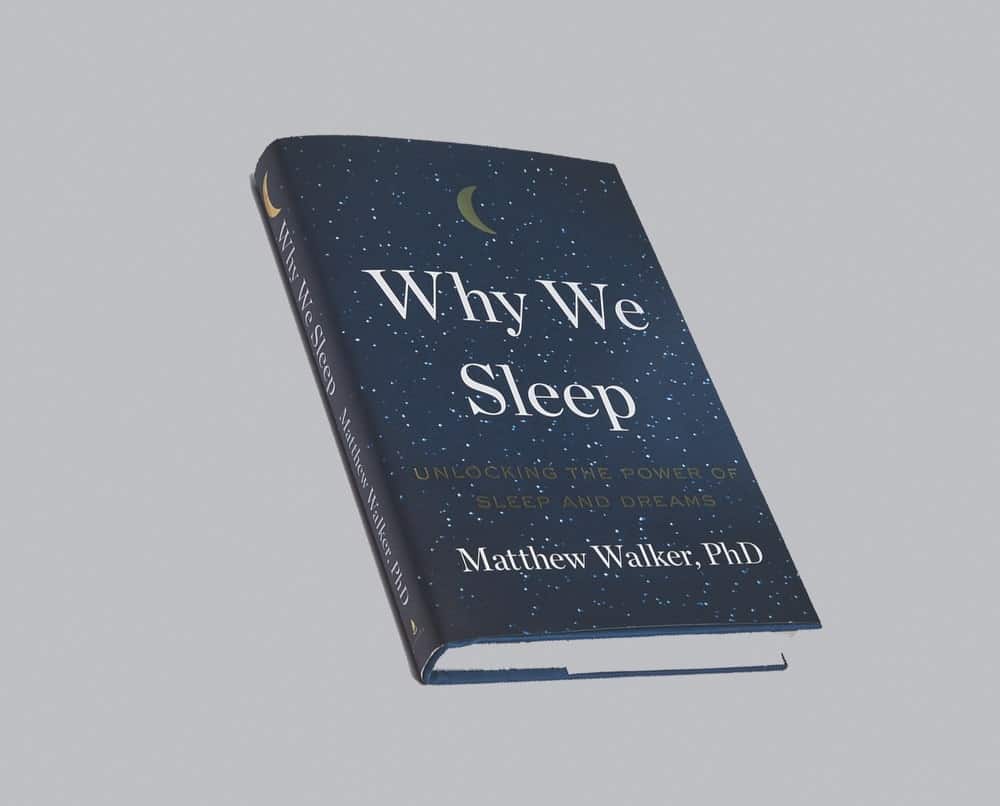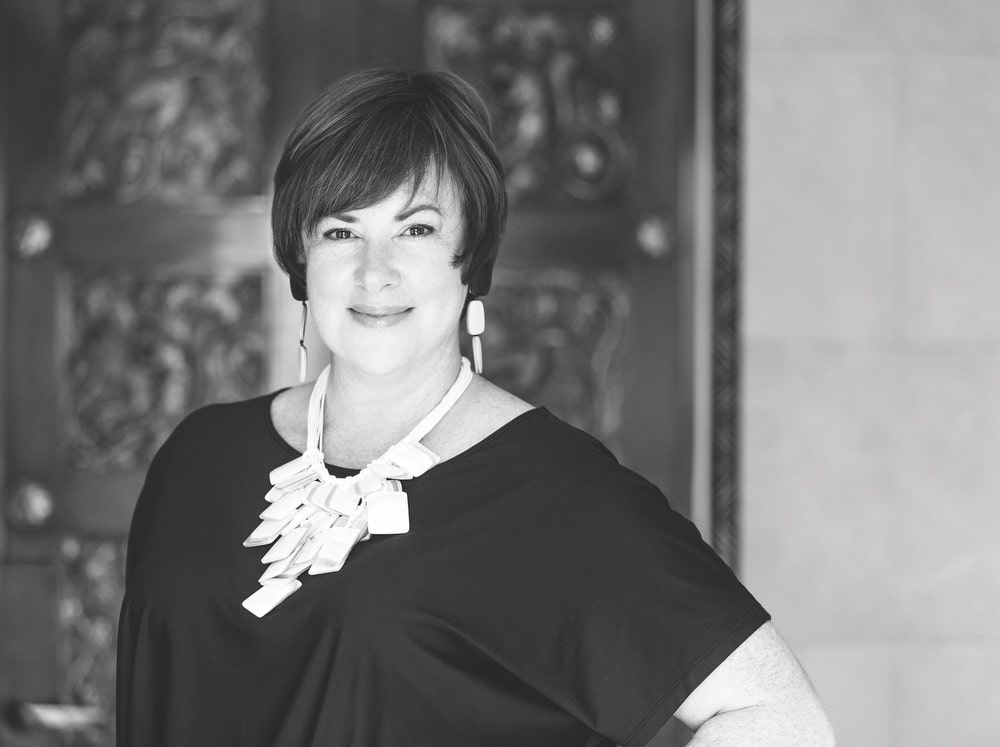
VIE_Magazine_JAN23_article_Spring_Forward_HERO-min
Spring Forward
By Suzanne Pollak
It was April 2022, and the world was stirring again when essayist Kerri Devine became curious about the insights her girlfriends may have gained during the lockdown and what they planned to do next. She hosted dinner for a small group, ages forty to sixty-five, which she called Spring Forward, not just for the season but for a reason: How would they move on after the pandemic ground life to a halt?
In my role as the dean of the Academy of Domestic Pursuits, I was invited to kick off the evening with cocktails and cooking lessons. There is something meaningful about a shared activity that knits people together. While cocktails soothe social situations, sitting around one big round table, having partaken of both pastimes, ensures a good conversation.

As the guests revealed what they had been through, Kerri told a story about her public meltdown in a Hobby Lobby store, an incident that left her feeling shaken and confused. Turning to friends for help, she discovered that not only did others have similar experiences, but they also gave it a name. Her first thought was: WTF, Mom? Why didn’t you tell me about this thing called perimenopause?
As her way to “spring forward,” Kerri created a survey about these symptoms and discovered 99 percent of the one hundred women surveyed (ages twenty-five to seventy) said they knew very little about the years prior to menopause (feeling that their mothers and doctors didn’t prepare them), and 73 percent said they wanted to hear from other women on what to expect.
With more conversation and education, lessening the social stigma of this natural change, the truth about perimenopause and menopause transitions will emerge, and women will know what they can expect.
With the goal of sparking more open conversation about this transition, Kerri launched “Hot in Charleston” on World Menopause Day, October 18, hosting a lunch for 150 women and a panel discussion between six writers and doctors, which she moderated.
Sharing personal tales that were also relatable, New York Times best-selling author Lee Woodruff told us how life could change in one instant. (Her husband, Bob Woodruff, co-anchor of ABC’s World News Tonight, was severely wounded by a roadside bomb in Iraq.) Essayist and educator Cinelle Barnes shared her own memorable story of a public meltdown. Bringing expertise in medical, nutritional, and behavioral science were Dr. Elaine Eustis, founder of Menopause Solutions in Mt. Pleasant; Dr. Anita Ramsetty, a Charleston-based internist with a nutrition and preventive health specialty; and Dr. Constance “Connie” Guille, founder of the Women’s Reproductive Behavioral Health Division at the Medical University of South Carolina.
We learned that the average age for perimenopause onset is forty-one, and it usually lasts four to eight years. However, for some, that perimenopausal stage can start in their mid-thirties and cover a whole decade. That’s right—ten long years. No matter the length, perimenopause is a challenging time with physical and emotional symptoms, including insomnia, weight gain, brain fog, hot flashes, anxiety, and mood swings, which can also create interpersonal problems. The doctors explained the importance of exercise during this challenging time, and the entire panel emphasized the value of sleep. Lee Woodruff commented that the book Why We Sleep: Unlocking the Power of Sleep and Dreams (by Matthew Walker, director of the Sleep and Neuroimaging Lab at UC Berkeley) was a life changer for her.

Hot in Charleston founder and author Kerri Devine
With menopause occurring at an average age of fifty-one (caused by an inherent drop in hormones), we heard that whatever our symptoms may be, they won’t last forever—“only” three to ten years! The doctors explained that while aging for women has negative connotations in our culture, a pro-aging movement is forming, highlighting the liberation from old roles and responsibilities that can come to us if we embrace this as a transitional time, a rite of passage to a new life. The empty nest is empty but can also be incredibly empowering and energizing.
Looking around the room, I could see a similar mood—surprise at what we didn’t know about all of this, with many of us nodding in agreement about what we had experienced. There was also a feeling of closeness as the panelists’ honesty gave voice to things we had been wondering about for years. I know I felt mesmerized and educated. For example, I was totally wrong in believing I had sailed through menopause with no symptoms just because I didn’t get a hot flash. Instead, I constantly felt cold, which I learned was another symptom—perhaps not as common, but a symptom nonetheless. I came away understanding that whether menopause leaves us burning or freezing, we still share the same life passage.
With more conversation and education, lessening the social stigma of this natural change, the truth about perimenopause and menopause transitions will emerge, and women will know what they can expect. How helpful that would have been for me! I thank goodness that others will have access to real information and, as a result, a better—or at least less bewildering—experience.
Looking around the room, I could see a similar mood—surprise at what we didn’t know about all of this, with many of us nodding in agreement about what we had experienced. There was also a feeling of closeness as the panelists’ honesty gave voice to things we had been wondering about for years.
Feeling a strong connection with the women at the luncheon, I left with the belief that the earlier we learn what’s happening inside our bodies and minds, the more impact we can have as mentors, doers, and change agents. Let’s also tell our daughters what to expect.
Now that Kerri Devine has established herself at the forefront of these developing conversations taking place after generations of quiet embarrassment, what is she planning to do next?
First, she wants to establish her October 18 World Menopause Day luncheon as an annual event. And she will continue to grow her interest in the universality of a woman’s journey, no matter who we are or where we live. She will write about the moments that feel like endings and how to turn them into beginnings, recognizing that as women, we spend a lot of time in those passages between who we are and who we are becoming. She wants to examine these instructive in-between times and explain that, despite our unique personal histories, we form a bedrock of commonality. When we are willing to talk about our experiences instead of hiding them, we become aware of the connections we share with others in transitional passages, fostering new conversations and ideas about how we plan to Spring Forward.
— V —
Visit HotinCharleston.com or follow Kerri Devine on Instagram @hotincharleston to learn more.
Suzanne Pollak, a mentor and lecturer in the fields of home, hearth, and hospitality, is the founder and dean of the Charleston Academy of Domestic Pursuits. She is the coauthor of Entertaining for Dummies, The Pat Conroy Cookbook, and The Charleston Academy of Domestic Pursuits: A Handbook of Etiquette with Recipes. Born into a diplomatic family, Pollak was raised in Africa, where her parents hosted multiple parties every week. Her South Carolina homes have been featured in the Wall Street Journal Mansion section and Town & Country magazine. Visit CharlestonAcademy.com or contact her at Suzanne@CharlestonAcademy.com to learn more.
Share This Story!
KEEP UP WITH THE LATEST STORIES FROM VIE
















































































































































